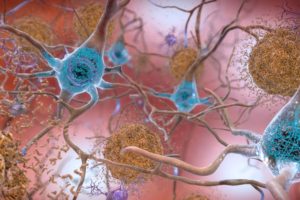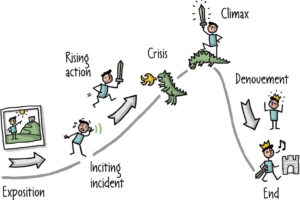Dreams are a marvel of the human brain. One type of dream portrays the dreamer achieving their innermost desires and goals. These dreams give the dreamer happiness and leave a lasting feeling of calmness even after the dreamer wakes up. Another type of dream is a nightmare, where the dreamer feels as if all hope for their goals and desires are lost, and they can’t achieve their innermost desire. They feel as if they have no control. These dreams leave the dreamer feeling lost or confused and may even startle them awake. Some dreams are so normal, that the dreamer doesn’t remember them, and thinks that they didn’t have a dream at all.
Which Part of the Brain Makes You Dream?
Dreams mostly occur in a deep state of sleep, known as REM, or rapid eye movement, sleep. The dreamer tends to fall in and out of this deep sleep periodically throughout the night. Some sleep studies prove that our brain activity during REM cycles is nearly as active as when we are fully conscious. Some experts believe that the part of the brain responsible for generating REM sleep is the brainstem. If the brainstem of the dreamer is injured, the dreamer will dream, but they won’t go into REM sleep. Experts also theorized that the forebrain is responsible for dreams. If the forebrain of the dreamer is injured, the dreamer will enter REM sleep, but will not dream.
Effects of REM sleep
1. Loss of muscle reactivity. This is a defense mechanism to ensure you don’t injure yourself by acting out your dreams in real life.
2. Lack of temperature regulation. Your body cannot regulate its own temperature via shivering or sweating, and so the temperature of your body tends to be the same as your room.
3. Your breathing and heart rate are slowed down.
4. Your pupil constricts. This is to ensure that not too much light gets in your eyes.
How are dreams created?
Our dreams, nightmares, and non-rememberable dreams are created by our imagination along with what we have seen over time in real life. Nightmares can also be created by a recollection of a bad memory, something that is prominent in people with PTSD, as they tend to have a nightmare about the event that led to their traumatization.
Two Interesting Facts About Dreams:
1. You always dream every night.
If you don’t remember the dream, and feel like you didn’t have a dream, this is because the dream wasn’t obscure or vivid enough to elicit feelings of fear or happiness. In other words, it feels normal.
2. Some dreams are so vivid and so scary, that you remember them hours, days, months, even years after the night of that dream.
These kinds of dreams or nightmares tend to haunt you throughout your life. Most nightmares tend to stick in your brain for a much longer time than regular dreams. Therefore, people usually recall nightmares better than regular dreams, and even good dreams.
Conclusion
Dreams are overall an interesting thing, they can cause pain, fear, nothing, happiness, and even exhilaration. Dreams are an important part of our everyday life as they can help us sort out our inner feelings, and commit memories to long-term storage in your brain.







Most Commented Posts